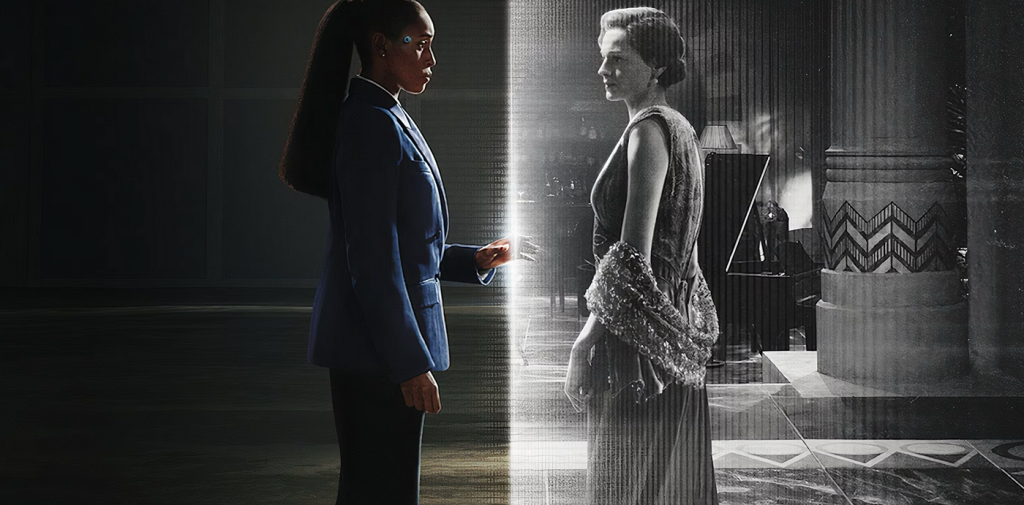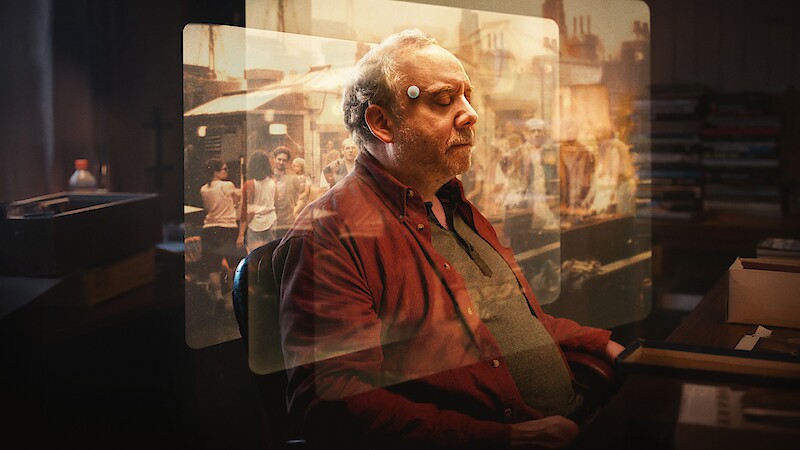In hindsight, the 2018 release of Black Mirror’s infamously experimental “interactive” film Bandersnatch did far more damage to the series than simply alienating fans. It signalled the decline of a once-great series, which was one of the first to popularise the thriller-esque, techno-satire now omnipresent in contemporary media. Despite new seasons still releasing every couple of years, it’s never really gained back its original novelty and lustre, and it likely never will.
For many years now, I’ve considered newer Black Mirror episodes to be less like entertainment and more like placeholder conversation-starters touching on whatever hot-button tech controversies happen to be popular at the moment. Season after season, episodes are nothing more than provocative sequences of chin-stroking and “what-if”-ism superseding any narrative ambitions they claim to present. At its worst, Black Mirror is tooth-achingly gimmicky, overstuffed drivel, which leaves me almost universally frustrated and bored.
Nonetheless, one thing is irrefutable: the series has never been lacking in its exceptional acting talent. The hour-long episodes are perfectly designed to spotlight the work of one or two leads. If all else fails, the strength of a single actor’s performance can make even bad episodes memorable (the season six episode “Beyond the Sea” starring Aaron Paul comes to mind). This is why I find myself binge-watching every new season upon its release, with the still-lingering hope that any new episode can measure up to classic episodes such as “Nosedive” and “Shut Up And Dance,” which transformed Black Mirror from its humble Channel Four beginnings to becoming a household name.

I’m pleased to say that season seven is the series’ most well-rounded in years. With the obvious exception of its glitzy season finale, “USS Callister: Into Infinity”—a satisfying sequel to an earlier Star Trek pastiche episode—the stories feel refreshingly pared back, focused less on aesthetics and more on each of their emotional cores.
Of course, there are still duds. We say death is the great equalizer, but not so in the season’s lacklustre first episode, “Common People,” a depressing critique of the notoriously poor American healthcare system. A Netflix-like subscription tech model for prolonging a loved one’s life, Rivermind, is introduced to the general public. Mike, a construction worker, is stuck picking up overtime shifts, going to increasingly desperate extremes to afford the latest iterations of Rivermind for his dying wife, Amanda. The episode does a commendable enough effort at showing how profit-incentivized healthcare programs exploit working-class families, but everything else is phoned in and completely uninspiring.
The fourth episode, “Plaything,” fares marginally better, and that’s only thanks to Peter Capaldi’s delightful take on the nutty lead character. Capaldi’s Cameron is a nerdy shut-in, infatuated with an 80s simulation video game populated by supposedly sentient beings called “Thronglets”. Will Poulter, resuming his role from Bandersnatch, makes a five-minute cameo, while a pseudo-crime plotline, which only concludes with a convoluted, frankly lazy excuse for a plot twist, occurs in the background. None of these elements redeem “Plaything” whatsoever.
Fortunately, the remaining episodes feel much more thoughtfully put together. Episode two, “Bete Noire,” a tension-filled workplace drama that spirals out of control in its bloody final act hinges on a laughably unbelievable plot device, but features great acting from Siena Kelly and Rosy McEwen. Episode five, “Eulogy,” in which an aging man, Philip, finally finds closure on a past lost love by literally stepping into a series of photographic memories, starts off contrived but is ultimately incredibly effective and moving. Paul Giamatti delivers a breathtaking, award-worthy performance which stands among the best of Black Mirror’s repertoire. The aforementioned finale episode, “USS Callister: Into Infinity,” is a very judicious and entertaining conclusion to the story set up in “USS Callister,” from season four.

My undisputed favourite episode, though, is the season’s third, “Hotel Reverie”. In this spiritual successor to “San Junipero,” one of the series’ most beloved episodes, Issa Rae and Emma Corrin play out an unconventional love story that transgresses the bounds of history, fiction, and reality itself, as they navigate the blind spots of an experimental new AI technology. However, I won’t spoil this twist—I implore you to watch it for yourselves.
Is Black Mirror back? Yes, and no. Season seven is a standout addition to the series, the likes of which we haven’t seen in the franchise in a decade. But as an anthology series, the show constantly needs to come up with new takes, rehashings, and twists—meaning that this is the kind of challenge that must be revisited with each new episode, in each new season.
Even so, what a great time to be a Black Mirror fan.
